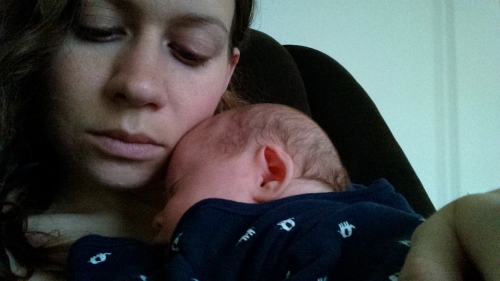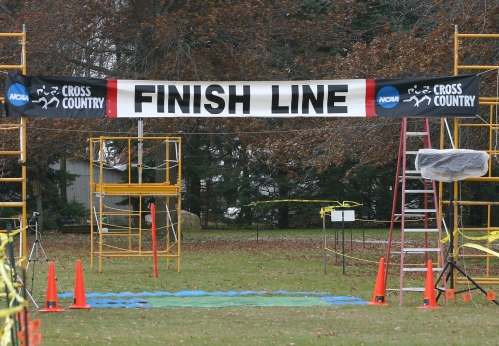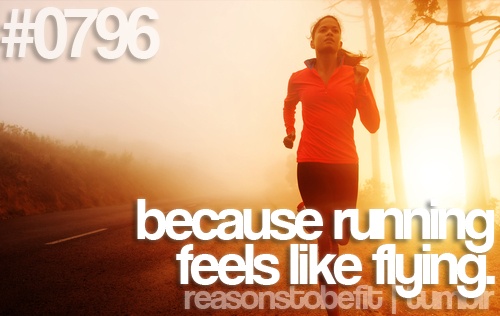
When I tell people that I meet that I’m a runner, I almost always get the same question: “So you run marathons?” And I find myself trying to explain to them that I am not that kind of runner. I’m a miler. Yes, that’s right, I run races that are just one mile long. And the truth is, I think that after college, being a miler is a whole lot harder than being a marathoner. You might be sitting there right now thinking “But a marathon is 26.2 miles long! A mile is just…one mile! How could that possibly be harder?” Let me try to explain.
Almost anyone who does any kind of running will tell you that it is much easier to train for any distance if you have people to run with, particularly people who run a similar pace as you and are training for a similar distance. And let me tell you something: almost anywhere you look, you can find a marathon training group. Go into your local running store and ask when their marathon training group meets, and you are almost certain to get an answer. Even many companies have groups of people who get together to train for the big local marathon. But try to find a team that runs and trains for track meets, and you will have a lot more trouble. You might find children’s track clubs, or professional teams for the truly elite, but the number of teams for non-professional adult mid-distance runners who want to run track meets is small.
Let’s say you can’t find a team to train with, but have decided that you’ll be alright going it on your own. If you’re a miler, you know that training for a mile is fundamentally different than training for a marathon. Marathons are generally run entirely on roads, or sometimes trails. There are roads everywhere. Most of your training can be done on the roads, trails, or sidewalks that are anywhere you are. But to train effectively for a mile, you need a track. If you are racing on a track, that is where you should be training. But finding a decent track that is 400m long and open to the public is often quite difficult.
Now, say you are located in one of the cities that has a quality track club for you to train with, as I did when I lived in Washington, DC (I’m looking at you, Georgetown Running Club!). The next challenge is finding meets that will let you run in them. If you are a marathoner (or road racer of any distance), you’ll find races to run everywhere you turn. Every weekend there is a race benefitting some charity or another, and you never have to travel far to find a race to run. Not so for track meets. Although in any given area there are probably tons of track meets going on each weekend, finding meets that allow athletes not affiliated with a school to run is challenging. Some meets allow unattached athletes to compete only if they meet very strict standards. Others, such as championship meets, don’t allow unattached athletes to run at all. Finding a good number of meets to run generally requires traveling a good deal, which often means missing days of work, something that we never had to worry about in college.
And setting aside the logistical issues that post-collegiate, non-professional mid-distance runners face, there is the psychological aspect-there are these phases that I almost always go through:
1. I’m so pumped up about my training. I’m feeling great, getting in shape. Thinking I ended my college career on a PR. I think I have the ability to improve on that, so I’m going to give it my all.
2. I’m at a meet, a few hours before my race is about to start. I’m super nervous. And then the thoughts start going through my head: Why do I do this to myself? I just drove 3 hours by myself, paying for my own gas, had to miss a half day of work. Now the meet is running way behind. These college kids that I am running against are like 8 years younger than me. They got to ride a bus here, sit under their fancy team tent and hang out with their teammates while I sit here in the sun by myself. I should probably just move on with my life. I feel like I am trying to extend my college years. It’s probably time to hang up the spikes for good and just go to road racing, where all the rest of the people my age are.
3. I run the race. It goes really well. Post-collegiate PR!! More thoughts running through my head: Well, I guess I can at least finish this season. I might even be able to get within a few seconds of my college PR! I know I can do better than how I ran today, and look how well that went! Sure, I’m having a lot harder time recovering from these races than the girls I’m running against. I can’t double like I used to. But hey, they’re 8 years younger than me! I think I’m doing quite well for my age. Track is fun! Why would I ever want to go back to road racing? Track is so much better.
4. Next race. Not a good race. I had a million things going on at work this week and I’m planning a wedding and trying to find a new job and a place to live. Adult things. I didn’t get enough sleep and my nutrition was poor and I couldn’t even get 5 days of running in. This is why most mid-distance runners who aren’t professionals end up doing longer road races. Life gets in the way. It’s much easier to just try new distances in which you don’t have these lofty PRs from a time when training for track was your life. I mean, 5ks could be fun, right? That’s only about 2 more miles than my preferred distance. I could do that.
5. I stop trying to do track training for a bit. I still run and do some workouts, but I decide I’ll try road races. I run a few 5ks on the road, and they go alright. No PRs, though. I decide to move up to a 10k. That was awful! Too much pacing and not enough speed. I wished it would have been over after the first mile. Come to think of it, I would much rather be running a one mile race instead of a 10k anyway. Tell me again why I decided to move up in distance?
And so it goes, back and forth, back and forth. The mile is my race, and it just keeps pulling me back in. And it’s not the mile that pushes me away; it’s the difficulties that come with trying to be a post-collegiate track and field athlete while maintaining a full-time job and dealing with all the other things that come with not being in college anymore. So will I ever hang up the track spikes for good? It’s hard to say. Ask me today, and I will say “No, I just had a great race last weekend! I still have a future as a miler!” But ask me next week, and my answer might be entirely different.











